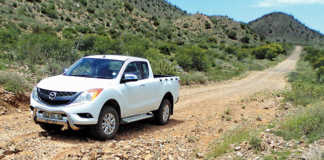Plans are under way to implement electronic monitoring of Somkhanda Community Game Reserve’s black and white rhino populations. South Africa’s Wildlands Conservation Trust (WCT) was instrumental in having 16 000ha of the Gumbi community’s successfully claimed land formally proclaimed as a conservation area in 2009. Under the guidance of WCT, the non-profit Global Nature Fund (GNF), together with the German Federal Ministry for Economic Co-operation and Development (GFMECD), will be funding the Global Positioning System (GPS) transmitters to be attached to Somkhanda’s rhinos.
The rhinos can then be better monitored. Somkhanda has lost two rhinos to poachers since the start of the year. “The hope is that this will not only prevent an animal being killed, it will also scare off potential poachers whose chances of being caught now increase,” said WCT CEO Dr Andrew Venter. The WCT, GNF and GFMECD also intend to assist the Gumbi Community to develop Somkhanda into an example of how Africa’s communities can conserve the continent’s unique and seriously threatened wildlife. This will possibly include reintroducing the African wild dog.
Along with the protection of the rhino, this will “improve the area’s tourism appeal, and the community will benefit from the increasing tourist visits on site,” said Stefan Hörmann, GNF’s programme manager. Somkhanda’s director, Nathi Gumbi, explained that discussions with the international partners were still at an early stage, but he felt that the ideas put forward were good.
“Protecting our rhino and having animals such as the African wild dog on our community reserve will help to attract tourists in a very competitive market,” said Gumbi.
He warned, however, that they would first have to consult with neighbours on reintroducing wild dogs. Wild dogs like to wander and we don’t want to have problems with them attacking our neighbours’ livestock.”











